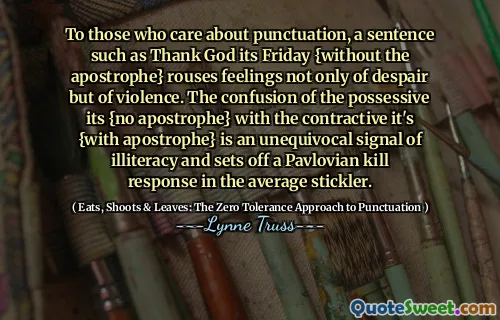
We may curse our bad luck that it's sounds like its; who's sounds like whose; they're sounds like their {and their}; there's sounds like theirs; and you're sounds like your. But if we are grown-ups who have been through full-time education, we have no excuse for muddling them up.
The author Lynne Truss, in her book "Eats, Shoots & Leaves", discusses the common confusion among similar-sounding English words and phrases. She notes that words like "its" and "it's," "who's" and "whose," as well as "they're," "their," and "there," often get mixed up. This confusion can lead to frustration, particularly when one realizes the significant difference these words can make in meaning.
Truss asserts that despite this confusion, adults who have completed their education should be capable of using these words correctly. She emphasizes that there is no valid excuse for mixing them up, highlighting the importance of understanding and applying proper punctuation and grammar in writing. Her perspective underscores the necessity of mastering these distinctions to communicate clearly and effectively.











